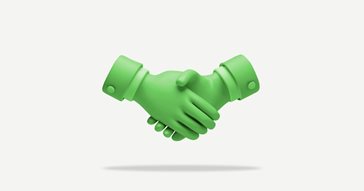What is financial wellness?
It’s all about establishing a better relationship with money and improving the overall health of your finances. Working on your financial wellbeing may mean you’ll be better placed to handle emergencies, achieve your goals, and even indulge a little. Leaving you more confident, less stressed, and ultimately feeling good.
Knowing where to begin can be a bit overwhelming. So, we’ve put together some handy tips to help you get started, whatever your financial situation.
Three ways to achieve financial wellness
1. Budget like a boss
Creating a budget may not be first on your bucket list but it’s an essential first step to achieving financial wellness. Follow these steps to boss your budget and master money mindfulness.
Calculate your income. This is all the money that comes into your accounts – how much and how often (weekly, fortnightly, monthly).
Work out your expenses. These can be fixed expenses (rent, bills, groceries, transport etc.), debt expenses (credit cards, mortgages, and loans for example) or unexpected expenses (things like car repairs, medical or vet costs).
Set some spending limits. Once you’ve worked out the money coming in and out of your accounts, you’ll be able to see what’s left over. Give yourself a spending limit and figure out how much you could squirrel away for a rainy day.
Modify as you go. Let’s face it, if the last two years have told us anything it’s that life happens, and things can change quickly. Don’t be hard on yourself if that happens, just modify your budget, and adjust it as needed.
- Check your bank statements to make sure you don’t miss any hidden expenses.
- It’s also a good idea to think about all your direct debits like Netflix, Spotify or gym memberships. Do you really use all these services?
- Check out the budget template on MoneySmart. It’ll save you having to create one from scratch.
2. Set some goals
Set yourself some financial goals to keep yourself accountable, track your progress and give you that well deserved endorphin rush.
Here are a few tips to help you get started.
Decide what you’re saving for. Write down your savings goals and stick them on the fridge. That way you can always see them and reflect on them.
Make your goals SMART. That’s Specific, Measurable, Achievable, Relevant and Timely.
Stick with it. Fight through the frugal fatigue by monitoring your progress and revisiting your end goal. You could even gamify the process with little rewards for each milestone you hit.
3. Consider these ways to save
a. Shop the sales
Keep an eye out for specials and discounted items. You’re likely to find the best bargains with fresh fruit and vegetables, meat and bakery items – why not buy in bulk and freeze any extras for later? Many stores also release weekly or fortnightly catalogues, which you might want to use to build a cheaper grocery list.
b. Use a reusable coffee cup for that takeaway latte
Check if your local café offers a discount for reusable cups. Many have started to again after a pause for Covid-19. It’s a win for your wallet and the environment
c. Make the most of benefits and reward programs
Your bank, insurance provider or super fund may offer rewards or benefits for being a customer or member. Have a look at their website or app to see if you could save on your next shopping trip or restaurant meal.
d. Find the best fuel price
The next time you need to fill your tank, check for the cheapest petrol in your area with one of the many fuel price apps available today. You can use most of them for free and most states are covered.
e. Check your super fund has your correct details
Have you given your super fund your tax file number (TFN)? If not, your super contributions are taxed at a much higher rate than they need to be. You’re also missing out on these benefits:
- Your super fund can’t accept any personal after-tax contributions
- If you’re eligible for the government co-contribution you may not get it
- Any benefit payments made may be taxed at a higher rate
If you’re a Rest member, you can check and update your details in the Rest App under ‘Account’. Otherwise log in to MemberAccess here and go to ‘Personal Details’.






